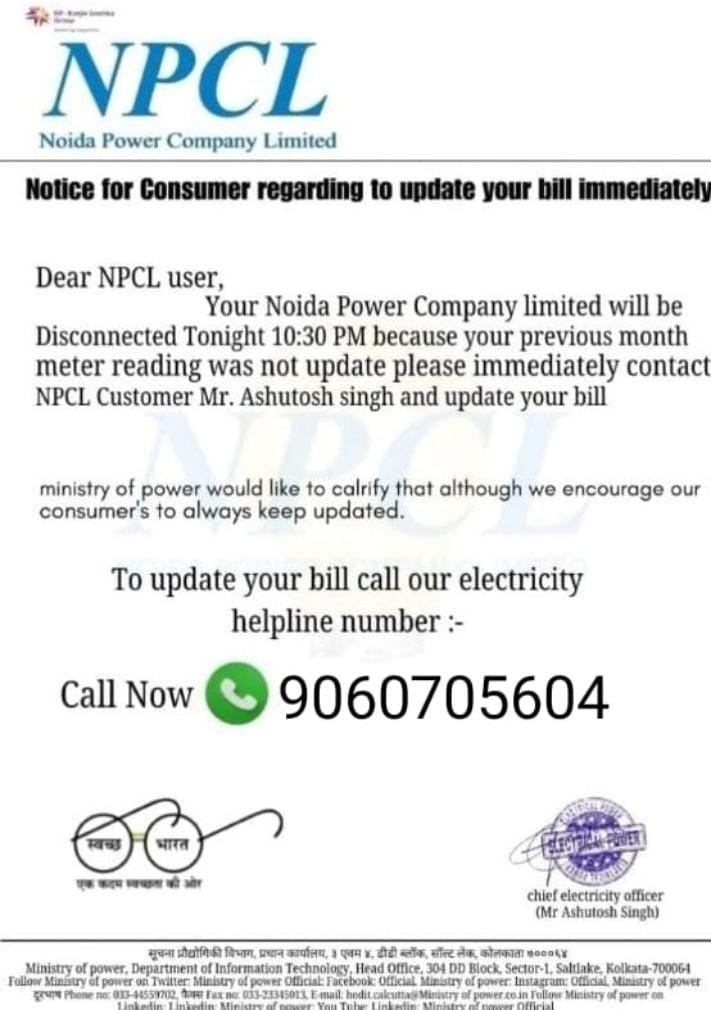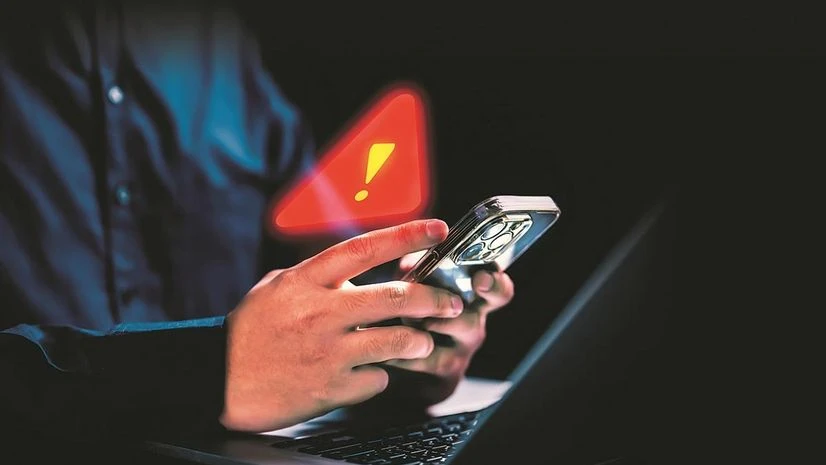A new wave of electricity bill scams is sweeping through Noida and neighbouring regions, with fraudsters impersonating Noida Power Company Limited (NPCL) officials to cheat unsuspecting consumers. These scammers send alarming messages threatening immediate disconnection of power supply unless the “unpaid bill” is cleared urgently.
How the scam works
Victims typically receive messages resembling official notices, complete with fake NPCL logos and fabricated designations. One such message claims, “Your Noida Power Company Limited will be disconnected tonight at 10:30 PM because your previous month’s meter reading was not updated.” It then urges the consumer to call a so-called “helpline number” to update the bill.
The number connects to fraudsters posing as NPCL employees, who manipulate victims into sharing sensitive information or making instant payments via UPI or online links. Once the payment is made, the scammer disappears — leaving the consumer both defrauded and still liable for their actual electricity bill.
Such scams exploit the growing digitalization of electricity payments. Most urban consumers now pay bills online or receive official SMS/WhatsApp notifications from DISCOMs. Criminals use this familiarity to craft believable fake alerts that create panic and pressure people into acting quickly.
NPCL’s official response
Taking note of the circulating fake messages, Noida Power Company Limited has issued a public advisory warning consumers not to fall for such traps.
“It has come to our notice that some consumers are receiving fake messages in the name of NPCL. Please note that NPCL never sends such messages to its consumers,” the company clarified through its verified channels.
Consumers have been urged to ignore and report such messages and to contact the company directly for any billing-related query through NPCL’s official 24×7 helpline number: 0120-6226666.

Common red flags
According to cybersecurity and banking advisories, these fraud messages can often be spotted by their tell-tale signs:
– Spelling or grammatical errors in the message body.
– Threats of immediate disconnection to induce panic.
– Random mobile numbers instead of verified business or toll-free lines.
– Requests for personal or banking information over calls or WhatsApp.
How to stay safe
Experts recommend simple but effective measures to avoid being duped:
◆Verify the sender — only trust communication from official discom IDs or verified apps.
◆Do not click on links or call numbers mentioned in suspicious messages.
◆Check dues directly on NPCL’s website, app, or official helpline.
◆Never share personal or financial details with unknown callers.
◆Report suspicious activity to the National Cybercrime Helpline 1930 or cybercrime.gov.in.
A recurring pattern
This form of fraud — known as electricity billing scam or false billing fraud — has been reported across several states. Thousands of people have lost money to fraudsters impersonating power utilities, telecom firms, or other service providers.
By mimicking authentic communication formats and exploiting consumers’ fear of losing essential services, these scams highlight the need for stronger awareness and digital literacy.


